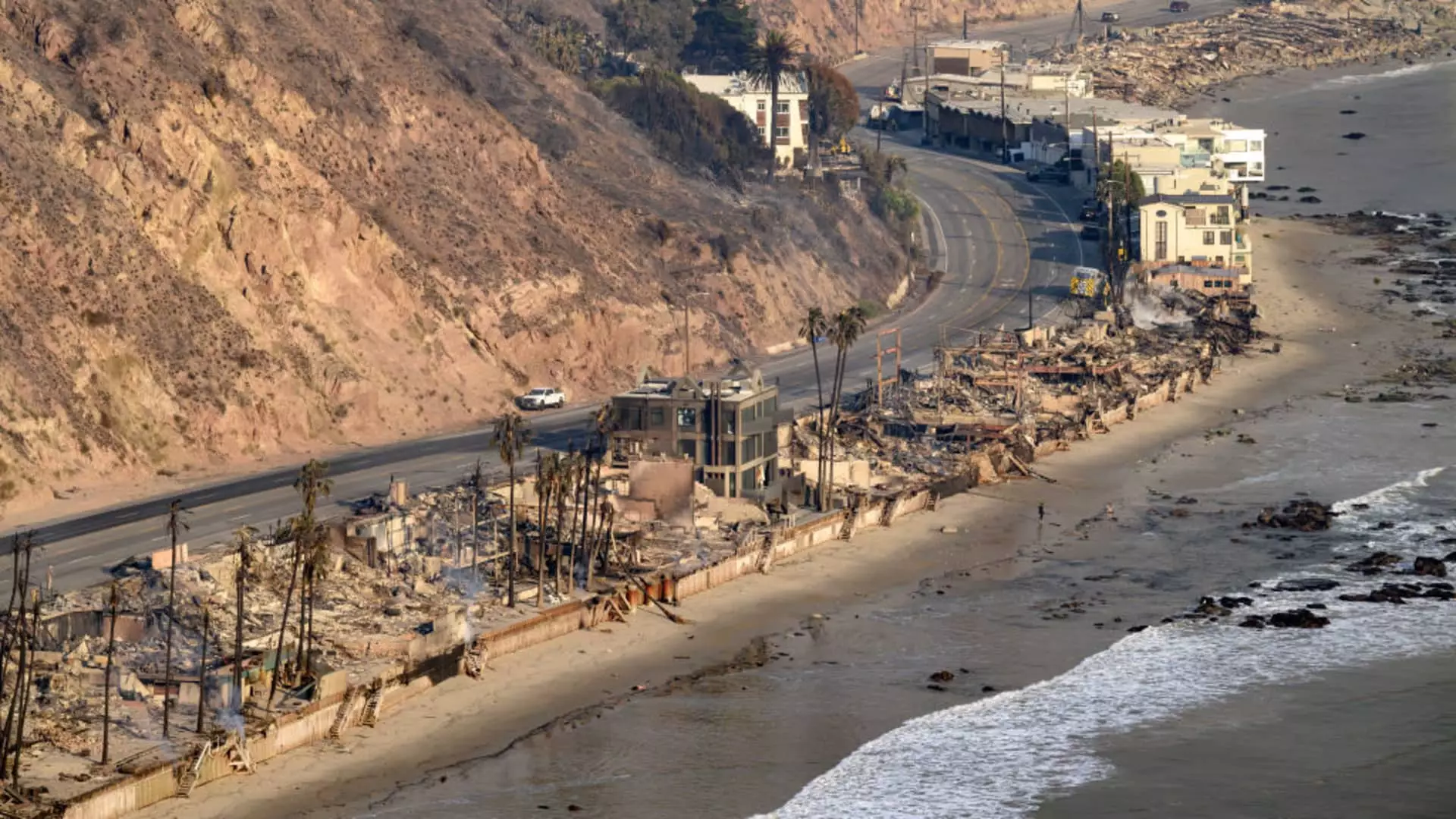In recent times, the smoldering wildfires raging in and around Los Angeles have created a significant uproar in the travel industry. Major airlines, such as American Airlines, United Airlines, Southwest Airlines, and JetBlue Airways, have responded to the crisis by instituting travel waivers that alleviate change fees for passengers headed to or from the city. This initiative comes amid dire circumstances that have led to widespread power outages, water supply issues, and unprecedented damage to numerous homes—over 10,000 structures have reportedly been affected.
On the surface, air travel appears to be functioning adequately, as noted by flight-tracking entities like FlightAware, which reported normal operations at Los Angeles area airports. However, the situation remains precarious, with significant sections of the city still under the shadow of the flames. Community advisories have escalated, urging residents in hard-hit areas, particularly Pacific Palisades, to resort to boiling water for consumption, suggesting a breakdown in local infrastructure.
Evacuation orders remain enforced in specific jurisdictions as firefighters tirelessly battle to gain control over the blazes. Consequently, many travelers have been caught in this tumultuous environment, prompting airlines to adapt rapidly to the changing circumstances.
Travelers reserving seats to or from key airports—including Hollywood Burbank, Los Angeles International, Ontario International, and John Wayne Airport—are now afforded a degree of flexibility. American Airlines’ latest policy allows free rebooking up through January 20, ensuring customers can alter their travel plans without incurring extra costs. Southwest Airlines is likewise accommodating, permitting alterations to travel plans with additional provisions for rerouting passengers to alternate California destinations such as Palm Springs, Santa Barbara, and San Diego.
This leniency reflects a broader recognition within the airline industry to prioritize passenger well-being during unforeseen disasters. Such initiatives not only assist travelers in recreating itineraries but also illustrate the airlines’ understanding of the profound disruptions caused by wildfires.
In a candid statement from Delta Air Lines, their president, Glen Hauenstein, indicated a slight dip in flight bookings to Los Angeles—a critical hub for both business and leisure travel. Notably, this decline, while alarming, is tempered by the fact that it hasn’t escalated to a tidal wave of cancellations. Hauenstein elaborated on the aviation industry’s resilience by highlighting that demand often burgeons after natural calamities thanks to the subsequent rebuilding efforts. This could imply that while immediate impacts are felt, the long-term outlook may still be optimistic.
Amid the devastation wrought by wildfires, the travel industry, particularly airlines, are showing adaptability in the face of adversity. With waiver policies and flexible rebooking options, they are striving to lift the burden off travelers during an extremely challenging time. The path ahead may be fraught with uncertainty, but the resilience of both the community and the travel sector offers a glimmer of hope for recovery after the flames settle.


Leave a Reply